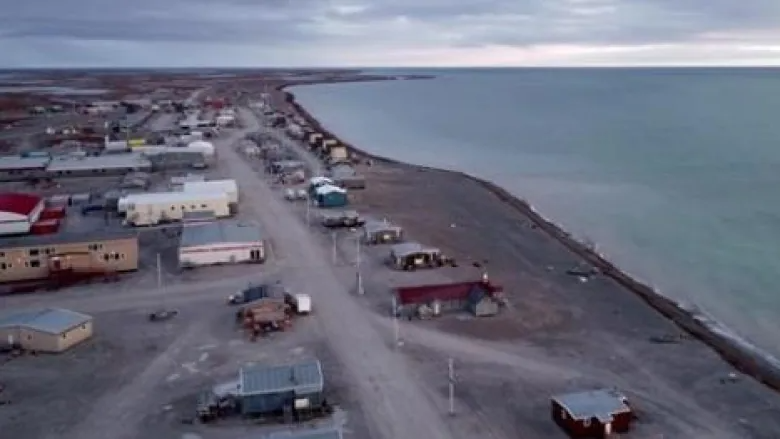‘It bit me on my neck and I blacked out’: Man recalls last week’s polar bear attack in Nunavut, Canada

When Elijah Kaernerk sneaked a glimpse of a polar bear munching on a carcass outside his cabin near Sanirajak, Nunavut, he was only trying to confirm its presence after being tipped off earlier that there might be one in the area.
“I went and looked around the corner, and I see the adult polar bear, eating left over food,” Kaernerk, a community reporter for Tausunni, recalled to CBC In Inuktitut.
“It growled, and left the food … then it stood up and started running towards me. I tried running away, and it approached me fast.”
Kaernerk was among the three adults who survived a polar bear attack last week near the community of Sanirajak, which sits on Foxe Basin, and has a population of about 800 people.
It all started when he and two other women — his partner and her sister-in-law — were travelling by ATV to his cabin. When they approached, a woman travelling back to the community told them that there was a polar bear near his place.
Kaernerk shrugged off the warning. But shortly after their arrival, he realized his mistake.
After its first attack on Kaernerk, it then approached his partner.
“As I watched the polar bear about to attack her, I struggled a little, but tried to get up, I stood up, then started heading to the bear,” he said.
Then he remembered the bear coming back toward him.
“He chased me around the ATV. The bear caught me, and started attacking me again. I can hear the attack on me, I can hear the cuts going in, and I can feel the teeth punching through,” he said.
“It started pulling my hair and it was painful. Then it let me go, then started approaching the others.”
The polar bear attacked Kaernerk three times in between attacking the other two.
Kaernerk said he saw one of the women being attacked in a similar manner in which a polar bear catches a seal. He said he started blacking out, but did his best to get up and distract the bear, in an effort to try and save the others.
“When I was being attacked, I didn’t feel so much pain, I was trying to keep the bear from going to the other two,” he said. “They all have children, and grandchildren too.”
When the bear came down on him again, he said he “felt a tooth on my eye.”
“It must’ve opened its mouth, it bit me on my neck and I blacked out, there was no more sound at all,” he said.
‘Dead silent’
Then, he said, there was complete silence.
“No voices, I couldn’t hear anything anymore. Then I realized, did the bear kill the other two? It was dead silent, I couldn’t get up. But then I heard a voice.”
That voice was the local reverend’s wife, he said.
“I raised my hand and shouted ‘I’m alright! I’m alright!,'” he said, then he heard his partner’s voice. “I was so happy.”

He said the next events were a blur. At one point he realized they were at the local health centre, and he said he “badly” wanted to see the other two. He blacked out again, and the next thing he remembers was boarding the medevac plane to Iqaluit.
“When we arrived, we were getting off the plane, and I can feel my feet getting cold. I was going in and out of consciousness,” he said.
“Next episode of blacking out came along, and I am now on the medevac plane again on my way to Ottawa, when we arrived, and the door opened, it was like opening the hot oven. It was hot … I have been taken very well care since then.”
Police said in a news release last week that all three were “badly injured” but that they were expected to recover. The other two remained in Iqaluit for treatment. Police also said the bear was found dead near the cabins.
Although polar bear attacks are rare in Nunavut, there have been fatal encounters with bears in recent years.
Kaernerk said he is grateful for the care he is getting in Ottawa and said he learned a good lesson about polar bears.
“I had this mindset, where animals aren’t feral, they’re not scary. If you don’t bother them they will not bother you. That is how my mindset was,” he said.
“I decided to go look, and if I didn’t go, the bear wouldn’t have seen me. That is how it happened.”
-Based on files from Cindy Alorut and Toby Otak
Related stories from around the North:
Canada: Polar bear damages search and rescue chopper in northern Canada, CBC News



